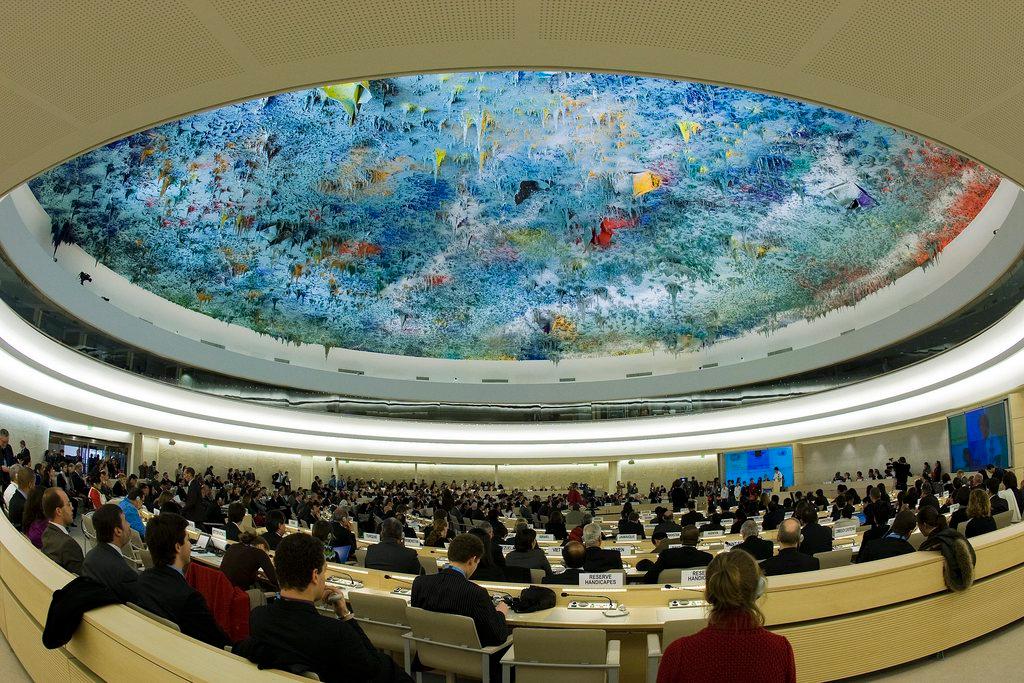
UN experts raise concerns over Swiss ‘responsible business’ initiative

United Nations human rights experts have raised concerns over the Swiss government’s position on the so-called “responsible business” initiative.
“We are concerned to read that the Federal Council [the government] has expressed a preference for voluntary commitments” by multinationals regarding their human rights responsibilities for their supply chains, a rapporteur at the UN Committee on Economic, Social and Cultural Rights declared on Tuesday.
Switzerland was defending its record before 18 independent experts from the Committee on Economic, Social and Cultural Rights (CESCR)External link, which monitors states’ commitments to the International Covenant on Economic, Social and Cultural Rights.
In reply, the head of the Swiss delegation, Valérie Berset Bircher, said discussions on a possible counter-proposal for the responsible business initiative External linkwere continuing in parliament. More broadly, she recalled that the government applied binding and non-binding measures in connection with the UN provisions on this issue.
The responsible business initiative was launched in 2015 by more than 60 NGOs and was handed in the following year after gaining the required 100,000 signatures of support. At stake are proposed new laws that would hold Swiss-based companies legally accountable if their overseas subsidiaries violate human rights or environmental standards. Switzerland’s parliament remains at logger-heads on how to hold companies accountable for their overseas operations.
Action plans on links between business and human rights and corporate responsibility are due to be revised by the end of the year. In August, the government asked companies to submit a report on the human rights impact of their activities. But the executive body refuses any additional responsibility from these actors beyond the regulations in force.
Swiss officials were questioned for several hours on Tuesday about their report to the CESR, which was submitted three years late. They faced numerous other questions relating to climate change policy, minorities, gender equality and the lack of impact assessments covering free trade agreements it draws up.
Addressing criticism that economic, cultural and social rights were not directly applicable before Swiss courts, a Bern official replied that “international obligations exist” and that these rights can be raised before a Swiss court.

More
Switzerland to set up independent police complaints commission

In compliance with the JTI standards
More: SWI swissinfo.ch certified by the Journalism Trust Initiative



























You can find an overview of ongoing debates with our journalists here . Please join us!
If you want to start a conversation about a topic raised in this article or want to report factual errors, email us at english@swissinfo.ch.